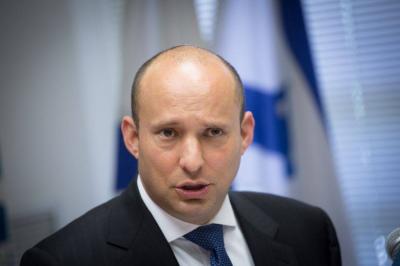Russian President Vladimir Putin confirmed on Friday that there are points of convergence and difference between Moscow and Tel Aviv regarding the Syrian issue, while Israeli Prime Minister Naftali Bennett only stated that he discussed the Syrian file and the Iranian nuclear program with Putin. These brief remarks came on the sidelines of the summit that brought together Putin and Bennett in the Black Sea resort of Sochi. This is Bennett's first visit to Russia since he took office as head of the Israeli government in June, succeeding Benjamin Netanyahu, who had a close relationship with the Russian president, visiting him more often than the United States.
Putin stated in remarks reported by Russian media during the summit: "As you know, we are making efforts toward restoring the Syrian state and strengthening it. There are many contentious issues here, but there are also points of convergence and opportunities for cooperation, especially regarding counter-terrorism." He added, "There are many issues that we need to discuss." Putin expressed hope that "despite the internal political battles that are unavoidable for every country, your government will continue to follow a policy of continuity regarding Russian-Israeli relations, where we have developed trusting and working relations with the previous government."
In a noteworthy mention, Putin highlighted the Iranian nuclear program, which is a top priority for Israel, and his country is part of the international agreement currently being revived. These discussions coincide with a visit by the U.S. special envoy for the Iranian nuclear program, Robert Malley, to explore ways to resume negotiations that are currently at an impasse amidst reports of an acceleration in Iranian steps toward acquiring nuclear weapons.
In response, Prime Minister Naftali Bennett stated: "We will discuss in detail trade and economic cooperation, as you mentioned, we have significant potential and there is still room for growth, and of course we will discuss the situation in Syria and the ongoing efforts to halt the Iranian nuclear program." Bennett continued, "For the past 20 years, you, Mr. President, have strengthened the relations between our two countries and brought them to their current level. I want to tell you on behalf of the Israeli people that we see in you a very close friend to Israel."
It seems that Bennett is attempting to significantly enhance Tel Aviv's relations with Moscow on the Syrian issue following Netanyahu's departure from power, amidst reports of a "cool" Russian response to Israel's repeated airstrikes in Syria. Russia has held significant influence in Syria since its military intervention began in 2015, while Israel has continued to carry out strikes on Iranian positions in war-torn Syria for years. Israel views the Iranian presence in Syria as a security threat, particularly in the southern areas, and deals with it through air and missile strikes, which has also led to tensions with Russia due to differing perspectives on this presence.




